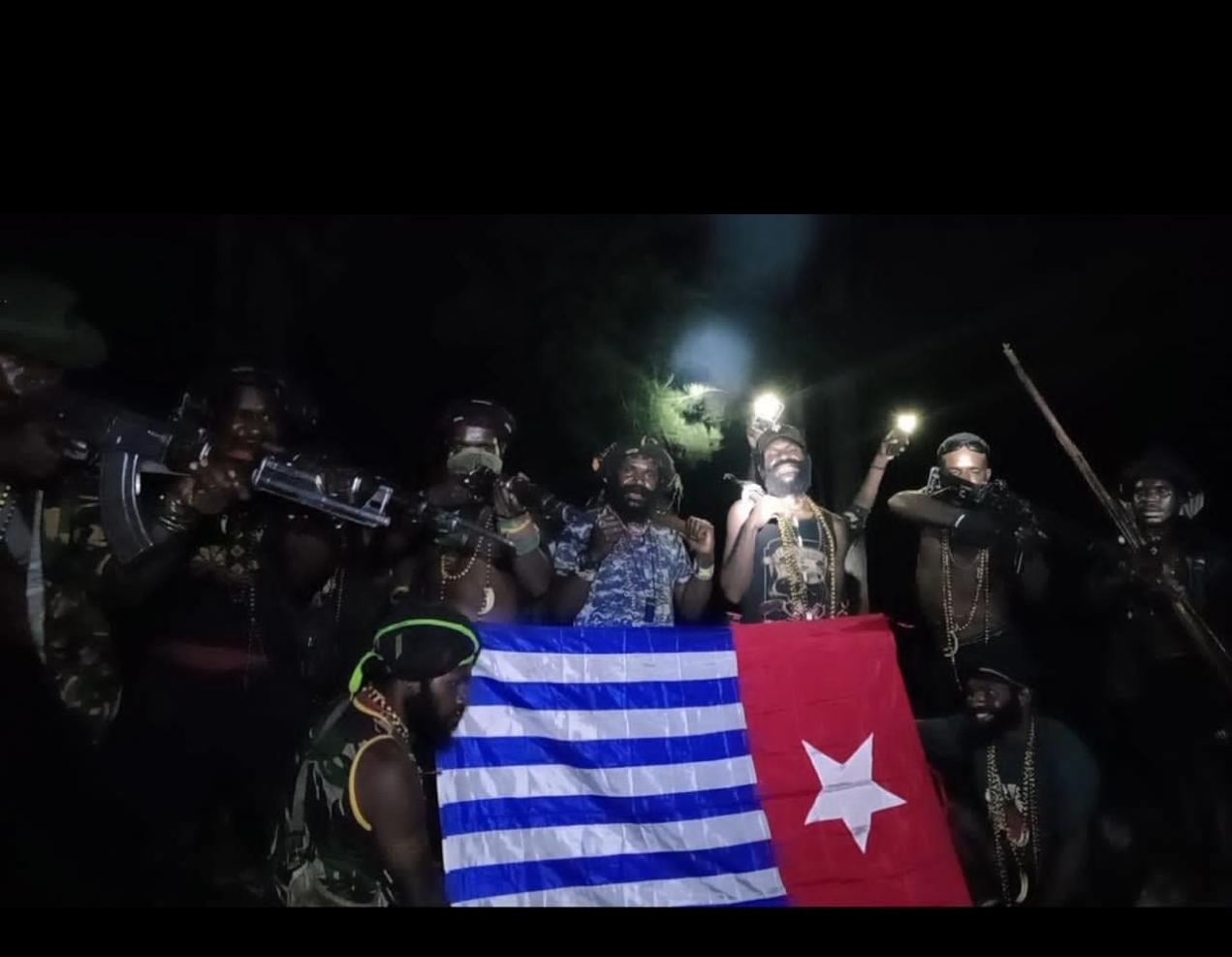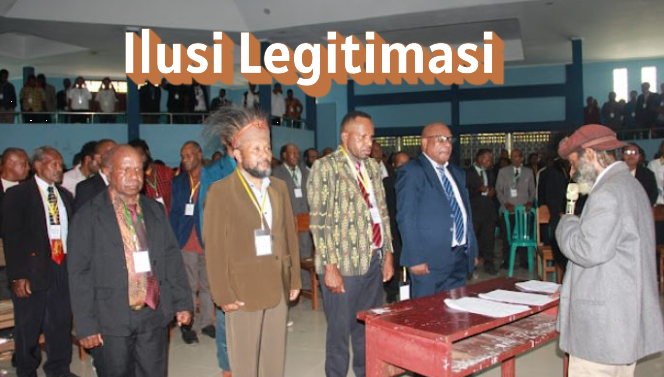On Monday morning, June 9, 2025, a press release from the Central Headquarters of the West Papua National Liberation Army (TPNPB) spread rapidly across media channels and activist networks. The content was startling: the Sinak regional command of the TPNPB issued a direct threat to Indonesian migrants in Papua — including motorcycle taxi drivers, vendors, and construction workers — accusing them of being undercover agents for the Indonesian government.
The group also declared that local Papuan officials, including governors, vice-governors, regents, DPRD members, and even fellow Papuans collaborating with the military, would be marked as targets for assassination. “We have released a wanted list and are ready to shoot on sight,” read the statement, signed by spokesperson Sebby Sambom.
Threats Against Non-Combatants
The statement has drawn criticism from numerous human rights observers and conflict analysts, who argue that such threats violate the fundamental principles of international humanitarian law.
“In any armed conflict, civilians must not be targeted, regardless of their profession. Threatening people like motorcycle taxi drivers or kiosk owners is completely unacceptable,” said Adriana Elisabeth, a Papua analyst from Indonesia’s Institute of Sciences (LIPI), speaking to Tempo Monday afternoon.
The Geneva Conventions — the cornerstone of international wartime conduct — explicitly prohibit attacks on civilians. Threatening them, even by non-state actors, could constitute a war crime.
According to Adriana, the TPNPB may be attempting to disrupt intelligence networks and pressure the government, but the way the message is framed may actually damage the movement’s image and public sympathy.
Military Strategy or Panic?
Security researcher Robby Yamitema of the Marapi Institute sees the press release as part of a psychological warfare tactic. However, he warns that such a move could prove to be a political misstep.
“The TPNPB is likely under immense pressure on the ground. But threatening civilians undermines their credibility as a liberation movement. It comes across as an act of desperation,” he said.
Yamitema noted that in recent years, Indonesian military operations have intensified in the central highlands of Papua. In response, the TPNPB has stepped up attacks. Still, turning their weapons and rhetoric on market vendors and drivers could strip the movement of moral high ground.
Fear on the Ground
Residents in Puncak Regency contacted by Tempo expressed growing anxiety. While no attacks have yet occurred, the atmosphere has become tense. Many migrants have reportedly chosen to stay indoors, halting market activities altogether.
A church leader in Ilaga, Reverend Yoram Telenggen, urged all parties to exercise restraint. “The first victims in any war are always ordinary people. If the TPNPB or the military targets civilians, there will be no path to peace,” he said.
Yoram also warned that threatening fellow Papuans who work in local government could cause internal fractures within Papuan society itself.
A Need for Strategic Reassessment
Many observers are calling on the TPNPB to reconsider its approach. The path to dialogue and a peaceful resolution becomes narrower if the movement loses the trust of the local and international communities.
“If they want Papua’s voice to be heard globally, they must be careful with their language and targets. Shooting a motorcycle driver is not resistance. It’s a crime,” Adriana emphasized.
As of now, the Indonesian government has not issued an official response to the press release. However, military sources say security has been tightened in several conflict-prone areas.










